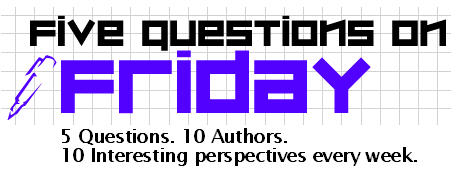1. What are some of the things people who don't know you very well tend to think about you?
I talk too much. I can’t possibly be that happy. I can’t possibly be that sincere when I ask people about their lives. I assume the task was to talk about the bad impressions. J In case you wanted some good things it would probably be...friendly, smart, jovial.
2. Which of these assumptions are true?
Most of them are true. The ones that aren’t...I actually AM that happy. I actually AM that sincere. I really just like people. And despite being 31, I think I’ve seen a lot in my life and many things that might stress others doesn’t really change my blood pressure. But yes...I definitely talk too much!
3. Which stereotypes about your country are true about you, if any?
Tough question. Stereotypes are often stereotypes because there is partial truth. For my country... the government is definitely anti-American. The people, not really. The government definitely has beef with Israel. The people, not really. Mostly, a Middle Eastern country like mine just wants to be left alone without the influence of the “Western” world. Obviously it’s not that simple. But I would say the extreme parts of most stereotypes are what should be looked at the hardest for the level of truth.
4. What are situations in which you find yourself to be prejudiced?
Depends on what it means to be prejudiced. I have made many observations about different people from different cultures or ethnic backgrounds, but it doesn’t in turn wield some negatively formed opinion by me of the people I come across from that culture / ethnicity. So if prejudice is a function of thinking or behaving negatively towards a specific group of people because they are *that* group of people, then I don’t really ever find myself to be prejudiced. But do I make observations? Well, see my answer to the next question.
5. To you, what value is there in stereotypes?
A stereotype, if observed thoughtfully and questioned properly can be a useful tool in understanding what drives a particular person to behave and interact as they do. For example, it is a stereotype that people from my culture wear lots of gold and smell heavy with cologne/perfume. And you know what? There are many people in my culture who fit that profile. I would just point to two things to “manage” the stereotype properly. First, realize that doesn’t apply to everyone. Second understand a little about those who do embody the stereotype. Behind the gold and perfume is a culture founded in a region where gold is very accessible, the sense of smell is not overlooked among the other senses and that the people have grown up to be social creatures wanting to be amongst others that want to talk about life, eat, dance and find a soul mate. And you really will find that just by digging into the stereotype a little bit.
Thursday, November 27, 2008
RAMAK SIADATAN: Prejudice and Stereotypes
Author:
Ramak
Read more of this author:
prejudice,
Ramak Siadatan,
stereotypes
Subscribe to:
Post Comments (Atom)




No comments:
Post a Comment